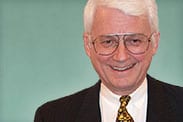But for the vast majority of the world, capitalism is a failure. Over a billion live on less than two dollars a day. In his “Capital in the Twenty-First Century,” economist Thomas Piketty warns the inequality gap is toxic, dangerous. As global population explodes from 7 billion to 10 billion by 2050, food production will deteriorate. Pope Francis adds, “Inequality is the root of social ills,” fueling more hunger, revolutions, wars.
For years we’ve been asking: Why does the capitalist brain blindly drive down this irrational path of self-destruction? We found someone who brilliantly explains why free market capitalism is hell-bent on destroying itself and the world along with it: Harvard philosopher Michael Sandel, author of the new best seller, “What Money Can’t Buy: The Moral Limits of Markets,” and his earlier classic, “Justice: What’s the Right Thing to Do?”
In reality, it’s impossible to stop the corrosive, cancerous influence of capitalism on civic morals…over time, irrepressibly, big business, which already owns the big media, buys social, political, and institutional power, and eventually controls society, its toxic values permeating every nook and cranny of the host culture. No society based on unlimited enrichment, gross inequality, constant warfare, and which defends selfishness as a virtue can be regarded as moral, sane, or viable.—The Editor
For more than three decades Sandel’s been teaching us why capitalism is undermining human morality … and why we keep denying this insanity. Why do we bargain away our moral soul? His classes number over a thousand. You can even take his course online free. He even summarized capitalism’s takeover of America’s conscience in “What Isn’t for Sale?” in the Atlantic. Listen:
“Without being fully aware of the shift, Americans have drifted from having a market economy to becoming a market society … where almost everything is up for sale … a way of life where market values seep into almost every sphere of life and sometimes crowd out or corrode important values, nonmarket values.”
His course should be required for Wall Street insiders, corporate CEOs and all 95 million Main Street investors. Here’s a short synopsis:
“The years leading up to the financial crisis of 2008 were a heady time of market faith and deregulation — an era of market triumphalism,” says Sandel. “The era began in the early 1980s, when Ronald Reagan and Margaret Thatcher proclaimed their conviction that markets, not government, held the key to prosperity and freedom.” And in the 1990s with the “market-friendly liberalism of Bill Clinton and Tony Blair, who moderated but consolidated the faith that markets are the primary means for achieving the public good.”
So today, “almost everything can be bought and sold.” Today “markets, and market values, have come to govern our lives as never before. We did not arrive at this condition through any deliberate choice. It is almost as if it came upon us,” says Sandel. Over the years, “market values were coming to play a greater and greater role in social life. Economics was becoming an imperial domain. Today, the logic of buying and selling no longer applies to material goods alone. It increasingly governs the whole of life.”
How free market capitalism secretly controls your morals
Yes, it’s everywhere: “Markets to allocate health, education, public safety, national security, criminal justice, environmental protection, recreation, procreation, and other social goods unheard of 30 years ago. Today, we take them largely for granted.”
Examples … for-profit schools, hospitals, prisons … outsourcing war to private contractors … police forces by private guards “almost twice the number of public police officers” … drug “companies aggressive marketing of prescription drugs directly to consumers, a practice … prohibited in most other countries.”
More: Ads in “public schools … busses … corridors … cafeterias … naming rights to parks and civic spaces … blurred boundaries, within journalism, between news and advertising … marketing of ‘designer’ eggs and sperm … buying and selling … the right to pollute … campaign finance … comes close to permitting buying and selling of elections.”
ABOUT THE AUTHOR

[box] Paul Farrell writes the column on behavioral economics. He’s the author of nine books on personal finance, economics and psychology, including “The Millionaire Code,” “The Winning Portfolio,” “The Lazy Person’s Guide to Investing.” Farrell was an investment banker with Morgan Stanley; executive vice president of the Financial News Network; executive vice president of Mercury Entertainment Corp; and associate editor of the Los Angeles Herald Examiner. [/box]
[printfriendly]
Remember: All captions and pullquotes are furnished by the editors, NOT the author(s).



